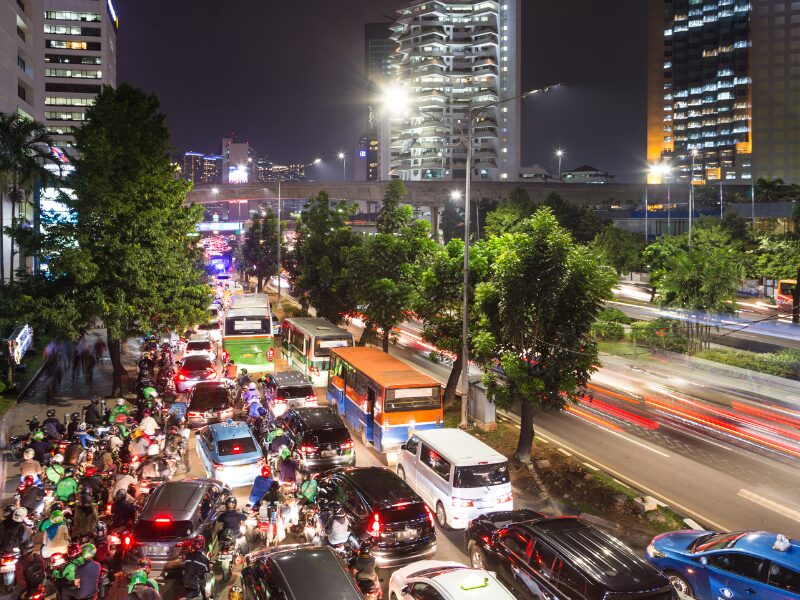Multi-level partnership launches CLARE SIRA program in Indonesia to boost inclusive local resilience
/
Cities play a crucial role in building resilience against risks such as natural disasters and health crises. The 2022 CDP report—which used data reported in the CDP-ICLEI Track platform—indicates cities taking a people-centered approach to climate change are taking 50% more climate actions than the average city.
The Asia Disaster Management and Civil Protection Expo & Conference (ADEXCO) 2024, held from September 11 to 14 at JIExpo Kemayoran in Jakarta, served as the launchpad for the Enhancing Local Capacities in Socially Inclusive Resilience in Asia (SIRA) project. The program was officially inaugurated on September 14 with a kentongan ceremony led by Dr. Raditya Jati of the National Disaster Management Agency (BNPB), alongside Arif Wibowo from ICLEI – Local Governments for Sustainability Indonesia, Arief Firiyanto from the Ministry of Home Affairs, and Eka Widyastama from the National Commission on Disability.
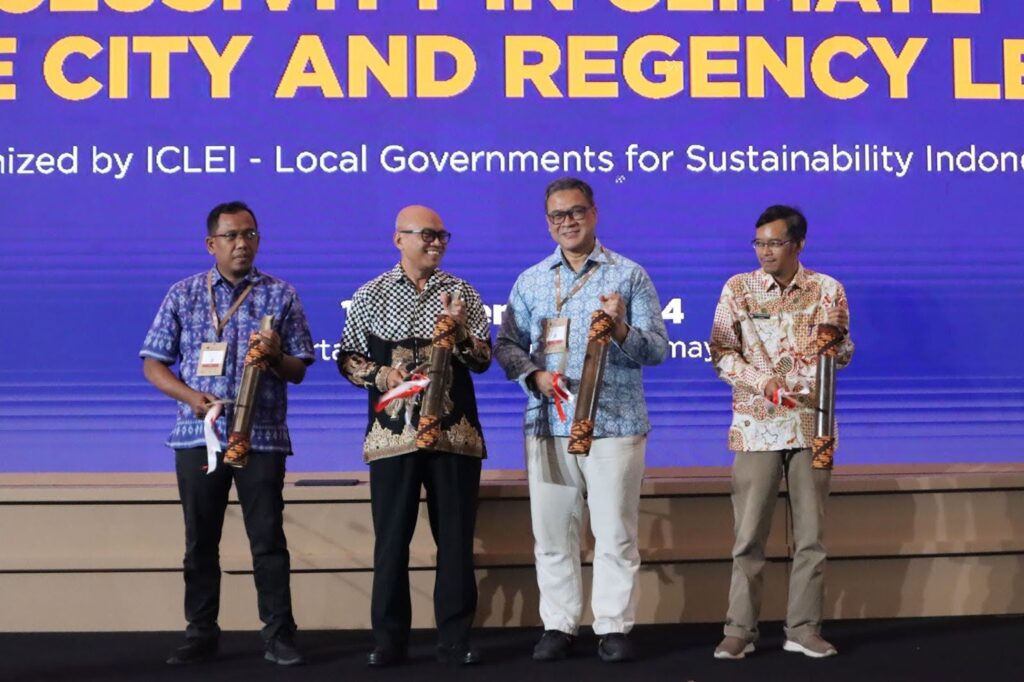
The implementation of the SIRA project in Indonesia is a collaboration between BNPB and ICLEI aimed at enhancing climate resilience at sub-national levels through anticipatory, preventive, and recovery measures in response to climate change impacts influenced by technological, social, and demographic advancements.
Funded by UK Aid through the Foreign Commonwealth and Development Office (FCDO) and the International Development Research Centre, Canada through the Climate Adaptation and Resilience (CLARE) programme and under the implementation of the ICLEI Southeast Asia and South Asia Secretariats, the SIRA project aims to identify and address the immediate capacity needs of local governments in pursuing climate action that is inclusive and sustainable through a systematic and phased capacity strengthening programme anchored on south-south cooperation among four Asian countries: Bangladesh, Indonesia, Nepal, and the Philippines.
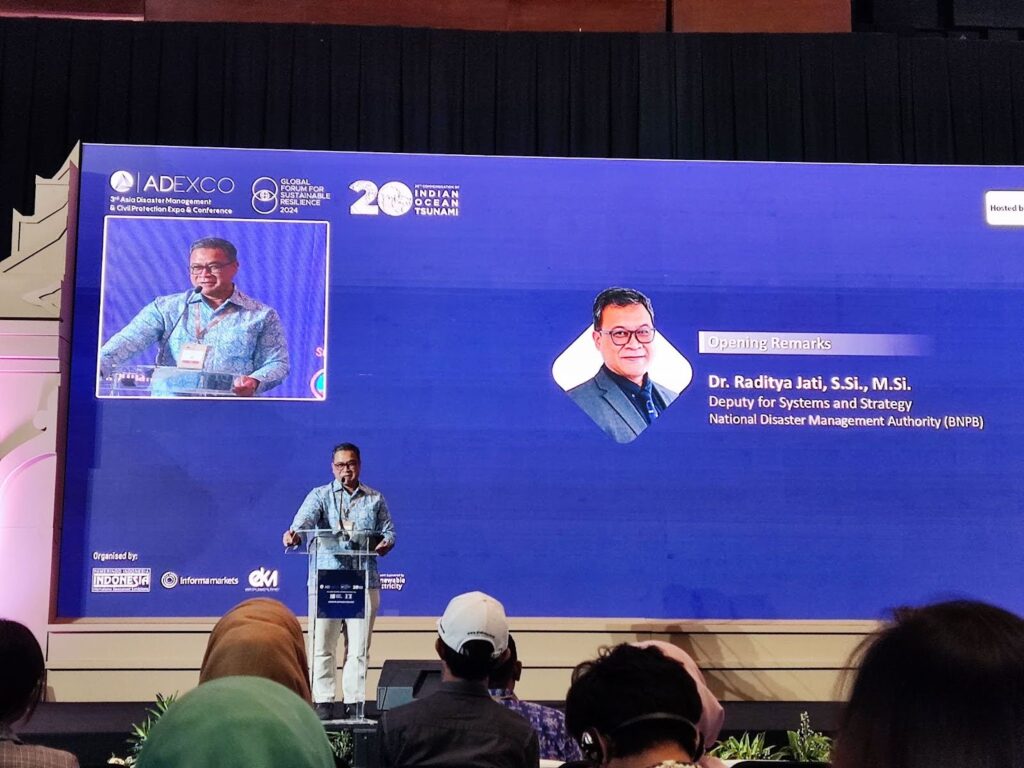
Dr. Raditya Jati, Deputy for System and Strategy at BNPB, emphasized that while the impacts of natural disasters are increasingly apparent and systemic, there are also opportunities to strengthen the resilience of cities and regencies. “The key to resilience lies not only in policies or infrastructure but in the community itself,” he stated.
Building upon this vision, Arif Wibowo highlighted the importance of equitable and people-centered approaches, saying “By advocating for solutions to the impacts of disasters and climate change, we must engage and understand the needs of every community group—women, children, the elderly, and people with disabilities—ensuring that decision-making is both targeted and effective.”
The SIRA program will focus on capacity-building and will advocate for the involvement of vulnerable groups, including women, in the planning and decision-making processes of local development.
To achieve its objectives, the SIRA program will implement four key approaches: (1) Identify capacity-building needs for local governments and climate practitioners in four target countries, including Indonesia; (2) Develop training modules and approaches to support socially inclusive, climate-resilient urban development; (3) Enhance the capacity of vulnerable groups, particularly women, in planning and decision-making; and (4) Disseminate learnings from capacity-building programs in other Asia-Pacific countries through networks and conferences.
Building Inclusivity in Climate Resilience at the City and Regency Levels
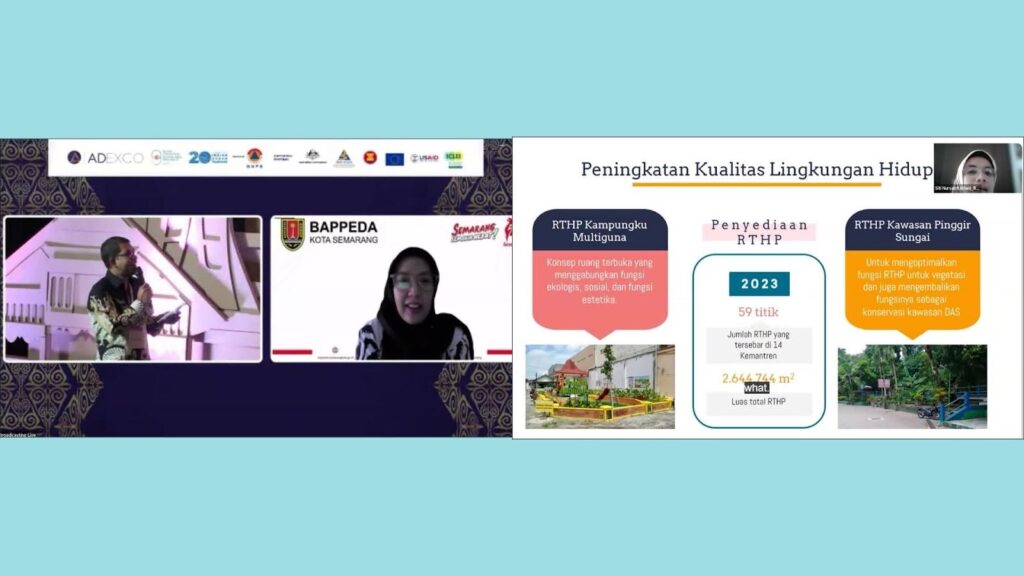
Setting the context from a sub-national perspective, local governments represented by cities and regencies were invited to present case studies on social inclusivity and climate resilience, including those from Semarang, Jambi, and Yogyakarta.
In their efforts to promote inclusivity, the Jambi City Government emphasized accelerating urban development by reducing regional disparities and addressing existing gaps through community self-reliance and participation. “One of our initiatives, the BANTAR (Clean, Safe and Smart) program, encourages residents to transform vacant land in their neighborhoods into green open spaces, herbal gardens, and play areas for children,” shared Mr. Suhendri from Jambi’s Development Agency.
On the other hand, Semarang City, a region vulnerable to the impacts of disasters and climate change, has implemented resilience programs in collaboration with various institutional groups since joining the Asian Cities Climate Change Resilience Network (ACCCRN) in 2009. “In response to disaster risks, Semarang has developed a city disaster information system designed for real-time dissemination and reporting of disaster information to the community, thereby accelerating disaster response efforts,” said Ms. Arwita Mawarti from Semarang City.
In Yogyakarta City, the slum management program highlights the importance of multi-level governance that actively engages various stakeholders in addressing informal settlements. The program aims to create comprehensive revitalization strategies by fostering collaboration among local government agencies (OPD), the Slum Handling Working Group (Pokja PKP), the Corporate Social Responsibility Forum (Forum CSR), the City Coordinator for the Slum-Free City Program (Korkot KOTAKU), the National Land Agency of Yogyakarta City (BPN Kota Yogyakarta), private sector actors, and vulnerable groups.
This inclusive approach ensures that diverse perspectives are considered, leading to more effective solutions that address the unique challenges faced by informal settlements.
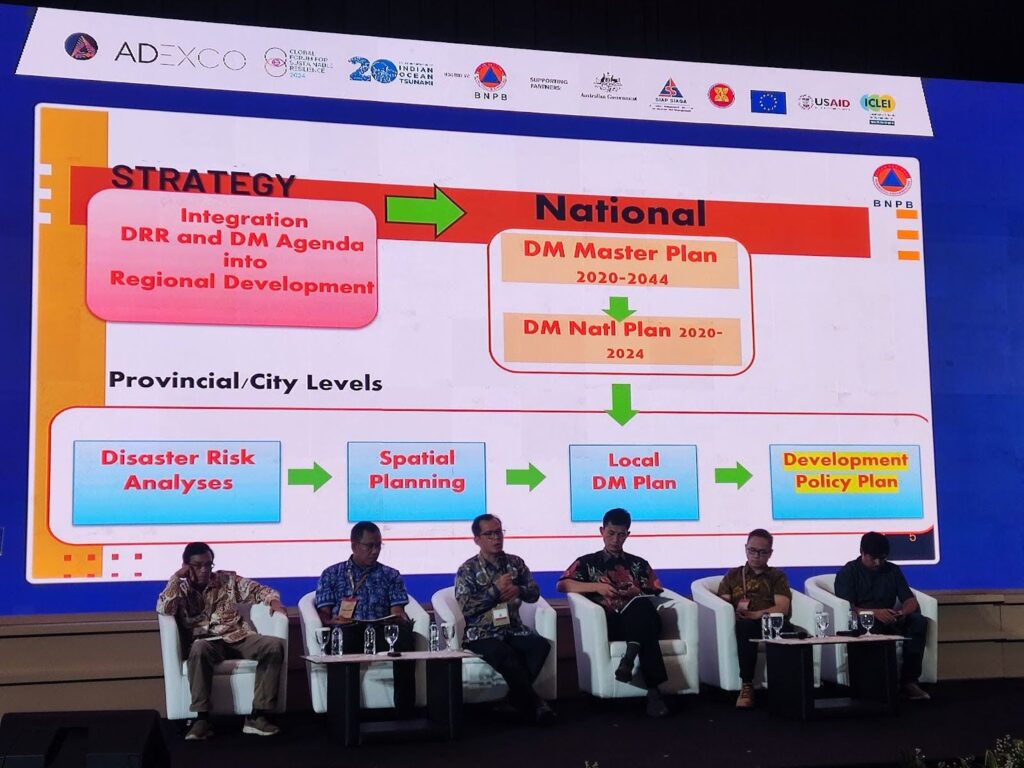
In another session, ICLEI Indonesia also hosted a panel discussion titled “Building Inclusivity in Climate Resilience at the City and Regency Level.” Moderated by Selamet Daroyni from ICLEI Indonesia, this session explored the critical intersection of local development policies, social inclusion, disaster preparedness, and nature-based solutions for sustainable growth.
The interactive panel brought together a diverse group of representatives from the Ministry of Home Affairs, the Association of Indonesian Municipalities (APEKSI), the Climate Change Adaptation Research and Development Center (CCROM IPB), the National Commission on Disability, and Save the Children Indonesia, with over 70 in-person and online attendees.
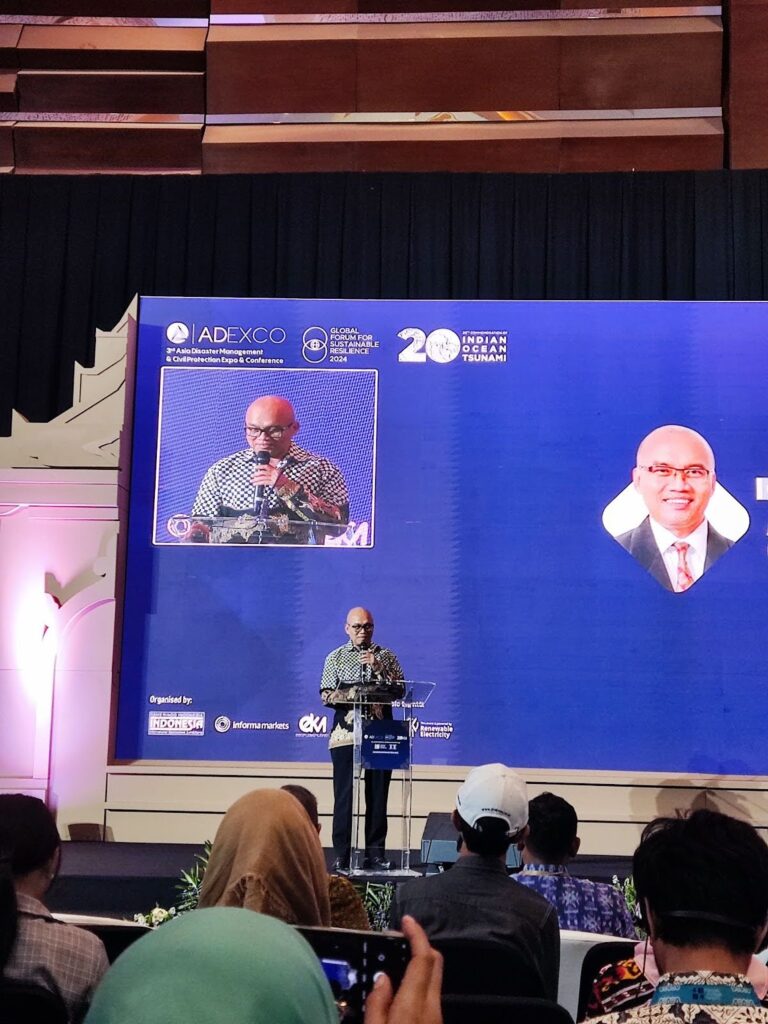
Each participant shared their unique perspectives and expertise, enriching the discussion with valuable insights on effective strategies for enhancing climate resilience and promoting social inclusivity in urban development.
In concluding the dialogue, Alwis Rustam from APEKSI articulated the importance of harmonization and alignment in climate governance and disaster management.
“It’s essential to foster a shared awareness and common vision while evaluating key aspects like budget regulations, monitoring, and cross-sector involvement. Institutions must work in harmony to achieve our shared goals, focusing on inclusivity and resilience. We must also recognize that disasters vary significantly based on regional capacities, populations, geographical challenges, and the impacts of climate change,” he stated.
These discussions have sparked dialogue around critical gaps and opportunities for strengthening resilience in cities and regencies against disasters and climate change. By adopting an inclusive approach, cities can engage stakeholders—government, community, and the private sector—to formulate robust strategies that enhance resilience and sustainability in urban environments.
CLARE is a UK-Canada framework research programme on Climate Adaptation and Resilience, aiming to enable socially inclusive and sustainable action to build resilience to climate change and natural hazards. CLARE is an initiative jointly designed, funded and run by the UK Foreign Commonwealth and Development Office and Canada’s International Development Research Centre. CLARE is primarily funded by UK aid from the UK government, along with the International Development Research Centre, Canada.
This news article was written by Juniarti Elisabeth, ICLEI Indonesia Membership and Communications Officer.
Categories
Countries
CLARE Pillars
CLARE Themes
CLARE Topics
Published
CLARE Projects
CLARE Partners


